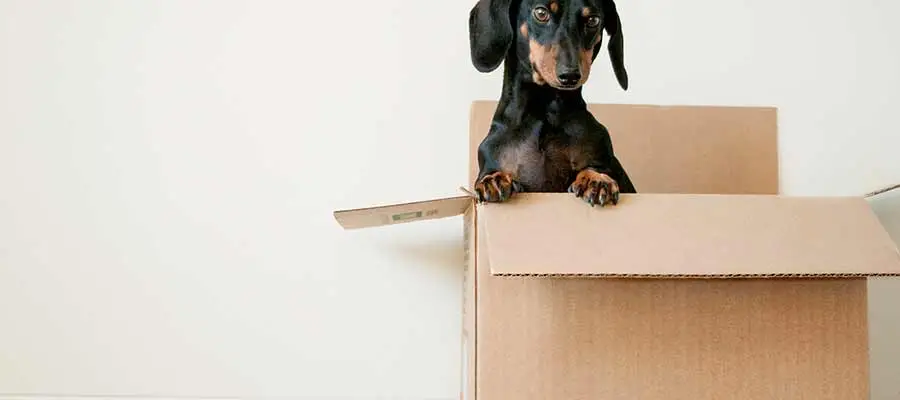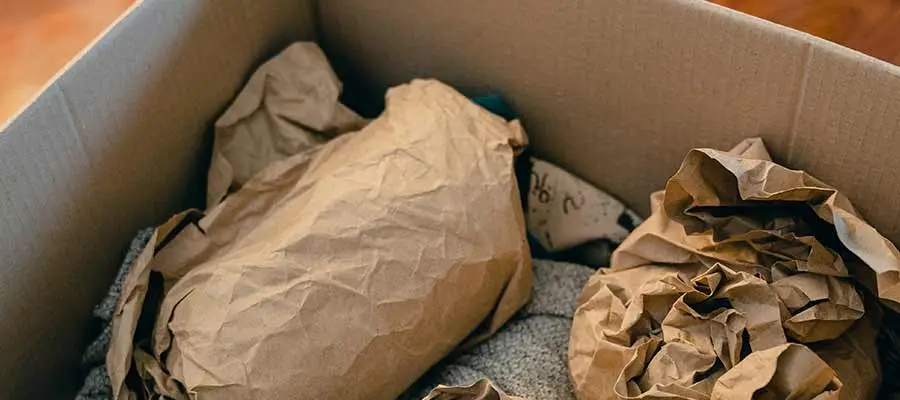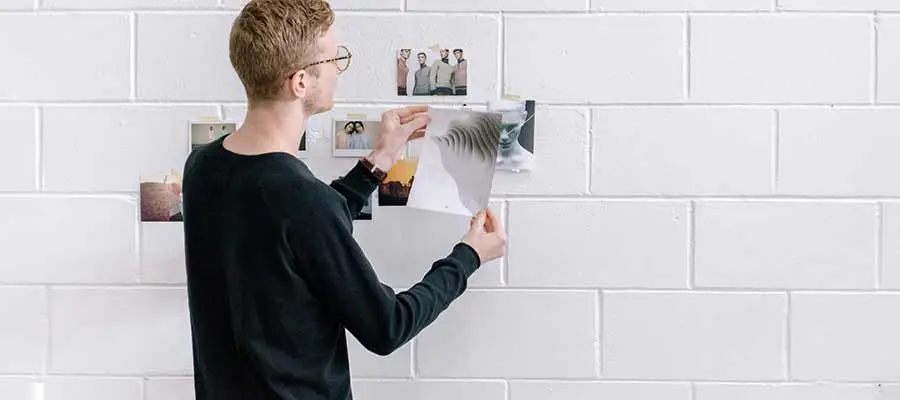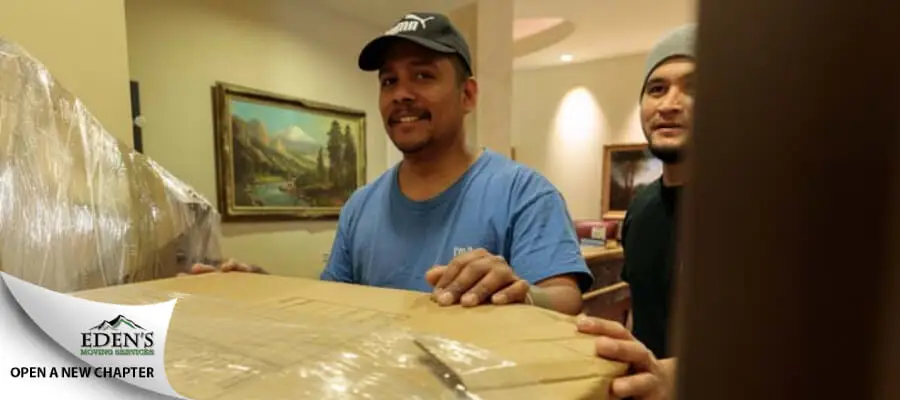Congratulations! You made that long-distance move, and you’re in your new home. It’s exciting, but then you look around and realize you have to start the unpacking process. Even if you did everything right–such as using a labeling system, the golden rule of moving–unpacking can be a daunting task.
Just looking at all of those moving boxes and simply remembering how difficult the dining room and all of those serving pieces were to carefully wrap and pack when you were preparing to move to your new place can be exhausting.
Take a deep breath.
Just like boxes had to be carefully packed for valuable art and antiques, and you had to make sure the packing materials were appropriate for your electronics, there are a few rules to follow that can make unpacking easier.
Maybe your long-distance movers in Denver did the packing for you using a color-coded system and did it in less than a day. It will take a bit longer than that to unpack, so let’s start unpacking!

The Unpacking Process Begins with Packing
Efficient unpacking depends on how good a job you did when you packed things up to move. Your best bet is to use the same methods long-distance moving companies use.
Did you use a color-coded system or some other sort of labeling system? Or did you pack up your kitchen items in moving boxes with your linen closet? Are your pantry items packed with office supplies? And then there’s the garage–one of the more difficult rooms to pack.
Organizing Tips to Speed Up Unpacking Moving Boxes
There’s no question that moving takes a lot of time and energy, and while Denver movers take on a lot of the stress, there’s still the need to unpack boxes that come from the moving truck. Here are some tips to make things go smoothly:
Only pack what you need.
This is packing 101–declutter. Donate and toss anything you don’t really need or want. Be ruthless and get rid of excess items. The less you take, the less time it will take to unpack.
Take photos
Photos can be especially helpful if you like how things were arranged in your old space. They also are good documentation for any previous damage (or lack thereof) to your belongings.
Pack a box of essential items
On move-in day, you don’t want to have to dig through a bunch of boxes in room after room to find things you’ll need on the first nights in your new home.
For yourself and any live-in relatives, pack things such as medications, toiletries, clothing changes, snacks, paper towels, a utility knife, and things like toilet paper and a shower curtain, spare towels–whatever you need to make your bathroom livable.
Develop an unpacking schedule
Just as you developed a packing schedule when you hired a long-distance moving company.
Ensure the right boxes get into the right room
Remember, use the same methods professional movers do and label boxes so that they are put into the correct room in your new space.

Unpacking Your New Home
The first thing to do, of course, is take inventory to make sure all of your belongings have arrived. If you’ve done a good job packing boxes, in a smaller space, it’s possible to unpack in less than a day. But even if your new home or new apartment is large, there’s no need to get overwhelmed. All of those boxes don’t have to be unpacked at once.
Don’t focus on the entire home. Start in a room, then the next room, and one box and a time, and even invent unpack games to make it more fun. Before you unpack anything, though, you’ll want to do a thorough cleaning. Again, if cleaning your new home all at once is too large a task, take it room by room.
Unpack needed items first
Whether you’re unpacking the living room, the hallway closet, the spare room, or the guest room, unpack boxes with the most important items first and place them.
Focus on just that room
You’ll never finish unpacking with a scattershot approach. Start in a room, unpack just that room, and only move to other rooms when you’re finished. Moving day is exhausting, no matter how efficient you are with the moving process.
That makes bedrooms, including the guest bedroom, a good place to start. You also might want to set up the living room as a place to relax after a hard day of unpacking boxes of bulk items and lifting heavy boxes.
And don’t forget to set up the bathroom as one of your first tasks! Place all the furniture pieces first, then unpack small office supplies and smaller stuff after.

Leave the most time-intensive room for last
Your kitchen is probably one of the most difficult rooms to unpack, so don’t do it on moving day. You’ll also want to wait to fiddle with anything that requires mechanical assembly. Save the kitchen for the next day, although you might want to unpack your coffee maker so you can have a fresh pot of coffee in the morning.
Plan where items will go before you unpack them
While it’s likely you’ve been planning in your head where each piece of furniture should go in the living room, and where those knick-knacks will be placed, it’s helpful to create a room plan. Grab a blank sticky note and draw out that desk arrangement, where that bedroom dresser will be placed, etc. Take it one room at a time.
Break down boxes as you unpack them
Boxes are much easier to move and store when they are flat, so break down empty ones as you go instead of letting them pile up for later. This is where that utility knife you packed in your essential items kit will come in handy.
Gather packing materials as you go
Bubble wrap, packing paper, tape, and other packing materials can pile up quickly and become a frustrating mess. If you have recyclable packing materials, use an empty box to recycle them conveniently. Otherwise, grab some large garbage bags and fill them for trash pickup.
Do not unpack everything
Things such as out of season clothes, holiday decorations, and anything from your spare storage can wait. Just place these items in supplemental storage areas, such as a garage, attic, or basement.
Don’t unpack your TV or games first
You might already be thinking of the end of your unpacking day and how you will enjoy lounging on the couch and playing a game or binging episodes of your favorite streaming show. But it’s best to avoid temptation–unpacking will go much faster without distractions, so save the entertainment unpacking for the end of the day.

Tips for room organization
It’s a fresh start, a new life, and a new home. As you unpack, you’ll want to organize as you go. Here are some tips for organizing the different rooms in your house:
The dining room
How do you want to use your dining space? The dining room, whether it’s a formal one or part of an eat-in kitchen, is often the “hub” of the home. This is where you sit down for a meal with family and friends, socialize, and make memories.
Assuming you got rid of everything you don’t like or don’t need, you’ll need to organize what you have kept. Keep frequently-used items handy in a hutch or china cabinet, and hang shelves to hold decorative items. If storage space is at a premium, think about hanging plates that you don’t often use on the wall.
The kitchen
The latest in kitchen organization consists of “zones,” so these are the first things to think about when organizing your kitchen.
- The first zone should be things you use daily, and they should be placed at eye level, close to the sink or dishwasher.
- The second zone is for cooking supplies, including spices, which you will want to store close to the oven. Zone number three is your pantry. Canned and dry food, as well as large cooking supplies, can be stored there.
- Zone four is for things like food storage items, aluminum foil, plastic wrap, etc., and should be near the refrigerator.
- Zone five is your sink area, and cleaning and dishwashing supplies should be stored in the cabinet under the sink.
- Zone six is for serving ware that you don’t use often. These can be placed in drawers or on high cabinet shelves, or even in a basement or attic.
The bedrooms
Organizing the bedrooms should start with bed assembly, of course. You’ll want somewhere to put your weary head when your long day of moving and unpacking boxes is done. Open that box marked “bed linens master bedroom” and make the bed. And because you have a room plan, place furniture and organize the closet, installing organizing units if needed.
The bathroom
Where to start? The medicine cabinet is a good place to start with the items from your essentials kit. And if the bathroom in your old place was a cluttered mess, this is a great time to purchase some organizational items for counters and cabinets to keep things tidy.

Making Your House Feel Like a Home
When the last room is unpacked, the boxes are broken down, and packing materials are recycled or thrown away, it’s time to make your new house feel like home.
- Add familiar sounds. Maybe it’s the chime of a grandfather clock or the soothing tones of a favorite national radio program. Whatever it is, familiar sounds can make you feel like you’re where you belong.
- Unpack art, but don’t hang it. Lean artwork against walls as you consider perfect placement. Just seeing familiar art and the memories it evokes can be comforting in a new place.
- Stick to your routine. Most of us have routines that keep us organized and provide a familiar rhythm to our days. Just because you’re in a new location doesn’t mean you have to change your routine. And if your routine is to go out for your morning cup of coffee, that’s a great excuse to explore your new surroundings.
- What makes things cozy? Are there candles you love? Music? Loved scents and sounds can add a cozy, homey feel.
- Have a front porch? If you are lucky enough to have a front porch, grab a chair and have a seat. Survey the neighborhood and greet anyone who walks by to feel more a part of your new community. If you don’t have a front porch…
- Hang out in your backyard. Absorb the sights, smells, and sounds. Think about getting a bird feeder. Plan where you’ll hang your hammock to enjoy warm spring evenings.

For Real Unpacking Efficiency, Let Your Moving Company Do the Packing
Packing things properly can be tough. And no matter what, packing is time-consuming and exhausting. For the most efficient, careful, damage-preventing packing, it’s best to turn to your moving company.
The movers and packers at Eden’s Moving Services in Denver are trained, experienced packers. We can tackle the task of packing your belongings using specific packing methods for your long-distance move.
Planning a move? Eden’s Moving Services is ready to help. Book a call to discuss your cross-country move or fill out our handy form for a free quote. You can also reach us at (720) 370-3455.


